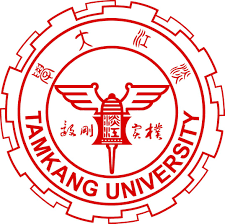Advanced Water treatment labortary
Research Field
Dr. Chi-Wang Li earned his Bachelor of Science in Water Resources and Environmental Engineering with honors from Tamkang University, Taiwan, in 1989. Subsequently, he obtained his Master of Science and Doctor of Philosophy in Environmental Engineering from the Department of Civil and Environmental Engineering at the University of Washington, Seattle, in 1993 and 1998, respectively. His doctoral dissertation was awarded the Best Doctoral Thesis Award by the Association of Environmental Engineering and Science Professors (AEESP). Dr. Li currently serves as Editor-in-Chief of the JOURNAL OF Applied SCIENCE AND ENGINEERING (JASE), which is indexed in the Emerging Sources Citation Index (ESCI), COMPENDEX PLUS (EI), and Scopus. He is a Professor in the Department of Water Resources and Environmental Engineering at Tamkang University, Taipei, Taiwan. His research interests primarily focus on integrating membrane technology with various physical and chemical processes for water and wastewater treatment. His current research endeavor centers on the recovery of resources, specifically fluoride and phosphate, from semiconductor wastewater through crystallization processes.
Aligned with Taiwan's ambitious 2050 net-zero emissions target, our laboratory leads the way in developing innovative solutions for sustainable semiconductor manufacturing. Recognizing the industry's environmental impact, we are committed to transforming waste streams into valuable resources. Our research focuses on developing and optimizing cutting-edge technologies for resource recovery from semiconductor wastewater.
- A key area of focus is a novel crystallization process for the efficient removal and recovery of fluoride as cryolite, a valuable byproduct with diverse industrial applications.
- Additionally, we are actively investigating methods to recover phosphate from these waste streams as iron phosphate, a critical raw material for lithium iron phosphate batteries, which are essential for the burgeoning electric vehicle industry. Our research efforts significantly contribute to Taiwan's commitment to environmental sustainability while advancing the development of crucial technologies for a greener future.
- The Best Doctoral Thesis Award (1999) presented by The Association of Environmental Engineering and Science Professors (AEESP)
- The best paper Award, 2018 Chinese Environmental Engineering Associate annual conference
- The best doctoral dissertation (Dr. Ya Vinh) by Blessing Education foundation (2021)
- The best doctoral dissertation (Dr. Natacha Martin) by ASE Environmental Protection and Sustainability foundation (2022)
- Journal of Applied Science and Engineering, Editor-in-Chief 2020 to present
- Sustainable Environment Research (SER), Associate Editor, 2014 to present
Ph.D. (Environmental Engineering), Department of Civil and Environmental Engineering, University of Washington, Seattle, WA (April 1998)
